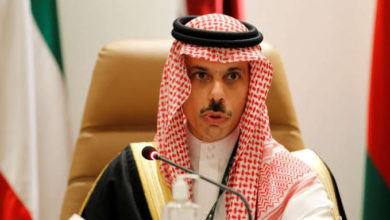
Ashraf AboArafe
The heads of research councils in the Middle East and North Africa region, members of the World Research Council, voted unanimously to re-elect the Kingdom of Saudi Arabia, represented by His Excellency the President of King Abdulaziz City for Science and Technology, General Supervisor of the founding team of the Research, Development and Innovation Development Authority, Dr. Mounir bin Mahmoud Al-Dasouki, as a member A representative of research councils in the Middle East and North Africa region on the Board of Governors of the World Research Council, during the eleventh annual meeting of the World Research Council, hosted by the Kingdom of the Netherlands in The Hague.
The re-election of Dr. Al-Dasouki confirms the prominent position of the Kingdom and its scientific institutions, and its distinguished efforts at the regional and global levels to serve research, development and innovation issues, and to enhance joint regional work between research councils in the Middle East and North Africa to strengthen its presence and contribution to the advancement of knowledge and innovation at the global level, in light of the support Unprecedented in the research, development and innovation sector in the Kingdom from the Custodian of the Two Holy Mosques King Salman bin Abdulaziz Al Saud, and His Royal Highness Prince Muhammad bin Salman bin Abdulaziz Al Saud, Crown Prince, Prime Minister and Chairman of the Supreme Committee for Research, Development and Innovation – may God protect them.
During the work of the annual meeting of the Global Research Council, His Excellency Dr. El-Desouki presided over the regional meeting of the heads of research councils in the Middle East and North Africa region, for consultation and continued coordination and harmonization between the regional research councils on the issues on the agenda of the annual meeting related to the best international practices for “recognizing and rewarding researchers.” And “Financing Climate Change Research”, and the importance of the role of international funding institutions and agencies in promoting international cooperation directed at serving sustainable science, development and innovation, in addition to reviewing the most prominent challenges and opportunities for regional research councils to strengthen their presence and contribution to the current and future activities of the World Research Council.
He also chaired a dialogue session to discuss the best global practices for financing climate change research, in which the participants endorsed a statement of principles on financing climate change research, which included emphasizing the best practices that should be taken into account in funded climate change research, the most important of which is strengthening international cooperation, adopting the concept of open science and the right to access to it, allowing participation in research outputs, scientific communication, financing strategies, taking into account social and economic conditions, the influence of local cultures and knowledge, capacity building in science, innovation and entrepreneurship, in addition to identifying best practices that entities should be supportive of climate change research.
On the sidelines of the annual meeting, Dr. El-Desouki met with a number of heads of international research councils in Singapore, Canada, the United States of America, Turkey, Britain and Germany, and discussed with them ways and areas of cooperation of common interest.
The Kingdom’s participation in the annual meeting of research councils included presenting a working paper on the most prominent challenges and opportunities for research councils in the Middle East and North Africa in the field of responsible evaluation of research, in addition to participating in the accompanying main meetings. Such as the meeting of the Executive Committee of the Council, the International Advisory Committee, and the meetings of the main working groups of the Council concerned with issues of equality, diversity and inclusion, responsible evaluation of research, and international multilateral funding.
It is noteworthy that the Kingdom plays a pivotal role in the work of the Global Research Council since its establishment in 2012, which is concerned with strengthening cooperation between research funding institutions, exchanging best practices and experiences of common interest in the fields of supporting scientific research, and exploring ways to support the scientific community around the world. Currently the Vice Chair of the Board of Governors of the Global Research Council, she also represents the regional research councils for the Middle East and North Africa region on the Board of Governors of the Council, and on the Executive Committee of the Council.




